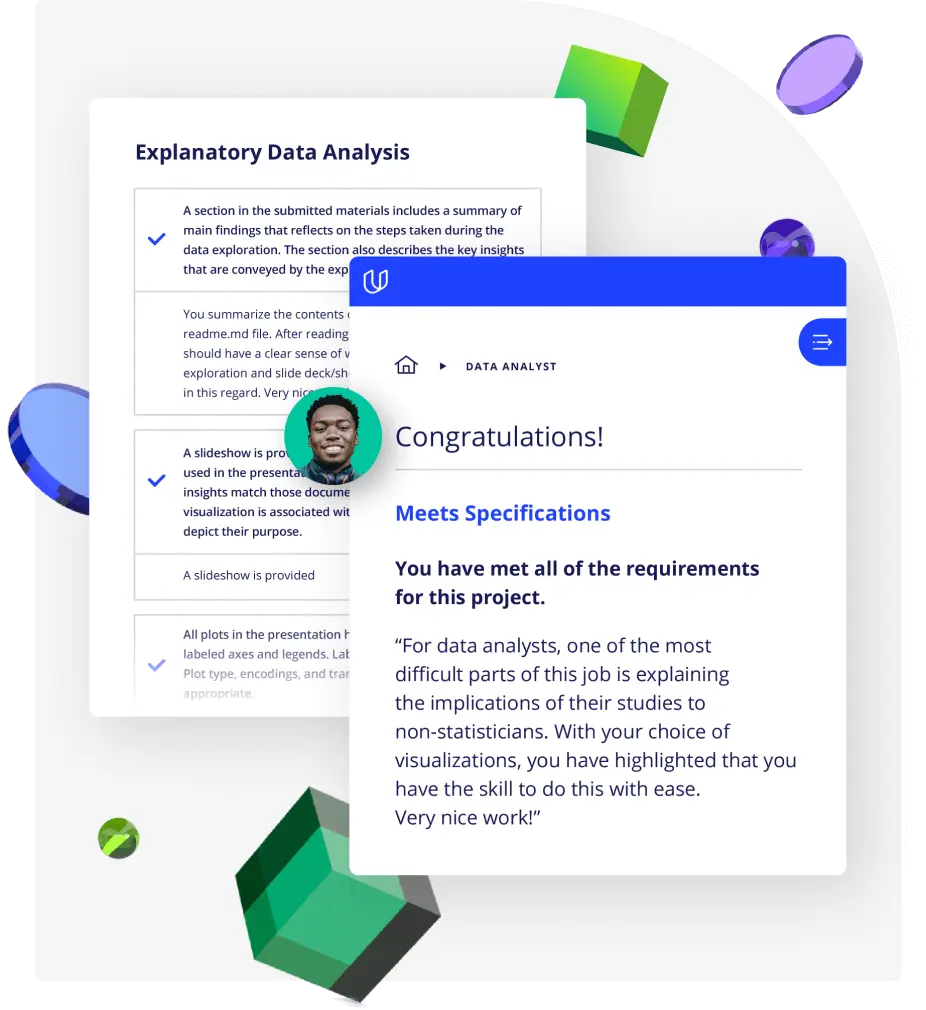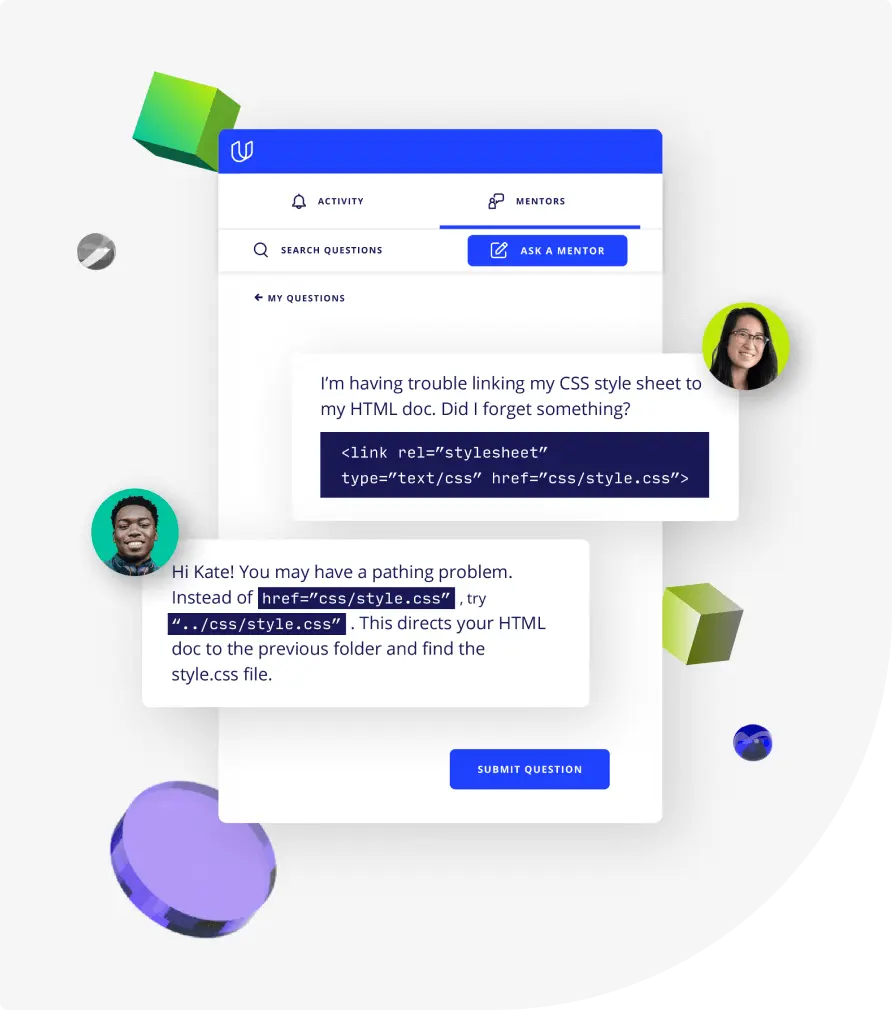Lesson 1
Introduction to Spark and Data Lakes
In this course you'll learn how Spark evaluates code and uses distributed computing to process and transform data. You'll work in the big data ecosystem to build data lakes and data lake houses.

Course
In this course, you will learn about the big data ecosystem and how to use Spark to work with massive datasets. You’ll also learn about how to store big data in a data lake and query it with Spark.
In this course, you will learn about the big data ecosystem and how to use Spark to work with massive datasets. You’ll also learn about how to store big data in a data lake and query it with Spark.
Intermediate
4 weeks
Real-world Projects
Completion Certificate
Last Updated July 25, 2024
Skills you'll learn:
Prerequisites:
Lesson 1
In this course you'll learn how Spark evaluates code and uses distributed computing to process and transform data. You'll work in the big data ecosystem to build data lakes and data lake houses.
Lesson 2
In this lesson, you will learn about the problems that Apache Spark is designed to solve. You'll also learn about the greater Big Data ecosystem and how Spark fits into it.
Lesson 3
In this lesson, we'll dive into how to use Spark for wrangling, filtering, and transforming distributed data with PySpark and Spark SQL
Lesson 4
In this lesson, you will learn to use Spark and work with data lakes with Amazon Web Services using S3, AWS Glue, and AWS Glue Studio.
Lesson 5
In this lesson you'll work with Lakehouse zones. You will build and configure these zones in AWS.
Lesson 6 • Project
In this project, you'll work with sensor data that trains a machine learning model. You'll load S3 JSON data from a data lake into Athena tables using Spark and AWS Glue.

Professor at Brigham Young University Idaho
Sean currently teaches cybersecurity and DevOps courses at Brigham Young University Idaho. He has been a software engineer for over 16 years. Some of the most exciting projects he has worked on involved data pipelines for DNA processing and vehicle telematics.
Combine technology training for employees with industry experts, mentors, and projects, for critical thinking that pushes innovation. Our proven upskilling system goes after success—relentlessly.

Demonstrate proficiency with practical projects
Projects are based on real-world scenarios and challenges, allowing you to apply the skills you learn to practical situations, while giving you real hands-on experience.
Gain proven experience
Retain knowledge longer
Apply new skills immediately

Top-tier services to ensure learner success
Reviewers provide timely and constructive feedback on your project submissions, highlighting areas of improvement and offering practical tips to enhance your work.
Get help from subject matter experts
Learn industry best practices
Gain valuable insights and improve your skills

Unlimited access to our top-rated courses
Real-world projects
Personalized project reviews
Program certificates
Proven career outcomes
Full Catalog Access
One subscription opens up this course and our entire catalog of projects and skills.
Average time to complete a Nanodegree program
4 weeks
, Intermediate
8 hours
3 weeks
, Advanced
(2)
4 months
, Advanced
4 weeks
, Intermediate
(127)
2 months
, Advanced
4 weeks
, Beginner
4 weeks
, Intermediate
4 weeks
, Advanced
4 weeks
, Intermediate
4 weeks
, Advanced
1 month
, Advanced
4 weeks
, Advanced
3 weeks
, Beginner
(80)
4 months
, Advanced
4 weeks
, Intermediate

Spark and Data Lakes
4 weeks
, Intermediate
8 hours
3 weeks
, Advanced
(2)
4 months
, Advanced
4 weeks
, Intermediate
(127)
2 months
, Advanced
4 weeks
, Beginner
4 weeks
, Intermediate
4 weeks
, Advanced
4 weeks
, Intermediate
4 weeks
, Advanced
1 month
, Advanced
4 weeks
, Advanced
3 weeks
, Beginner
(80)
4 months
, Advanced
4 weeks
, Intermediate